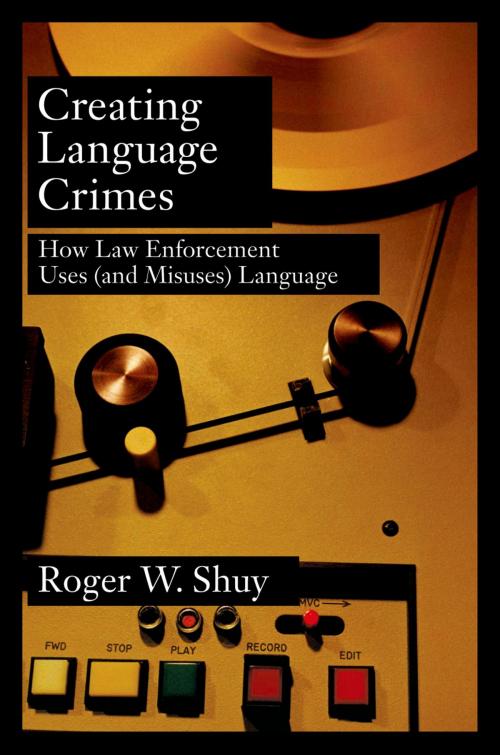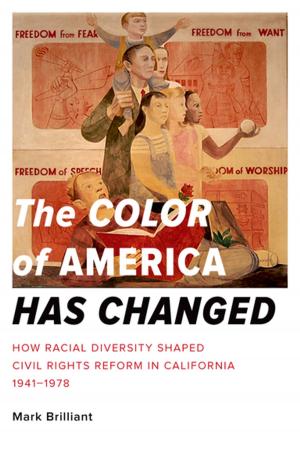Creating Language Crimes
How Law Enforcement Uses (and Misuses) Language
Nonfiction, Reference & Language, Law, Criminal Procedure, Social & Cultural Studies, Political Science, Politics, Law Enforcement, Language Arts, Linguistics| Author: | Roger W. Shuy | ISBN: | 9780190292805 |
| Publisher: | Oxford University Press | Publication: | September 15, 2005 |
| Imprint: | Oxford University Press | Language: | English |
| Author: | Roger W. Shuy |
| ISBN: | 9780190292805 |
| Publisher: | Oxford University Press |
| Publication: | September 15, 2005 |
| Imprint: | Oxford University Press |
| Language: | English |
This book by Roger W. Shuy, the senior figure in forensic linguistics, is the first to explain in an accessible way the vital role that linguistic evidence and its proper analysis play in criminal investigations. Shuy provides compelling case studies of how language functions in investigations involving, among others, wired undercover operatives, and the interrogation of suspects. He makes the point that language evidence can be as important as physical evidence, but yet does not enjoy the same degree of scrutiny by investigators, attorneys, and the courts. Beyond this, however, his more controversial thesis is that police frequently misuse or manipulate language, using various powerful controversial strategies, in order to intentionally create an impression of the targets' guilt or even to get them to confess. This book makes its case by analyzing a dozen criminal cases involving a variety of crimes, such as fraud, bribery, stolen property, murder, and others. About half involve co-operating witnesses who do the tape recording, and the other half undercover police officers. These cases demonstrate how undercover operatives use different conversational strategies, such as overlapping conversation, ambiguity, interruption, refusing to take "no" for an answer, and others to create a negative impression of the targets on later listeners. Creating Language Crimes provides a fascinating window into a little-known and discussed facet of law enforcement. It will appeal to anyone concerned with language (particularly sociolinguists and discourse analysts), as well as to those involved in law enforcement and criminal cases.
This book by Roger W. Shuy, the senior figure in forensic linguistics, is the first to explain in an accessible way the vital role that linguistic evidence and its proper analysis play in criminal investigations. Shuy provides compelling case studies of how language functions in investigations involving, among others, wired undercover operatives, and the interrogation of suspects. He makes the point that language evidence can be as important as physical evidence, but yet does not enjoy the same degree of scrutiny by investigators, attorneys, and the courts. Beyond this, however, his more controversial thesis is that police frequently misuse or manipulate language, using various powerful controversial strategies, in order to intentionally create an impression of the targets' guilt or even to get them to confess. This book makes its case by analyzing a dozen criminal cases involving a variety of crimes, such as fraud, bribery, stolen property, murder, and others. About half involve co-operating witnesses who do the tape recording, and the other half undercover police officers. These cases demonstrate how undercover operatives use different conversational strategies, such as overlapping conversation, ambiguity, interruption, refusing to take "no" for an answer, and others to create a negative impression of the targets on later listeners. Creating Language Crimes provides a fascinating window into a little-known and discussed facet of law enforcement. It will appeal to anyone concerned with language (particularly sociolinguists and discourse analysts), as well as to those involved in law enforcement and criminal cases.















